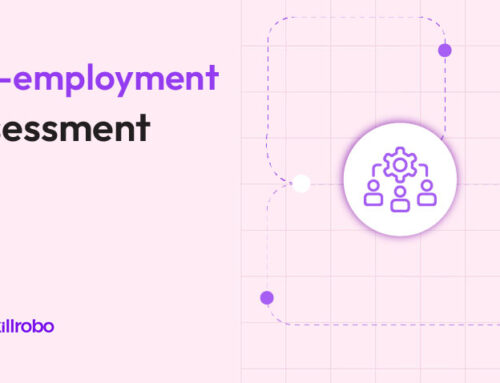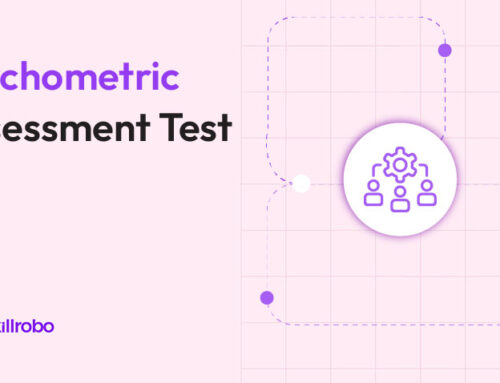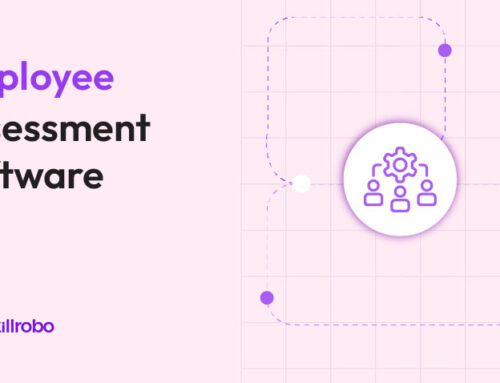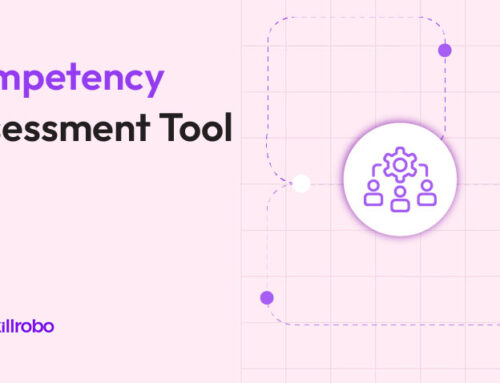Table of Contents
Related articles
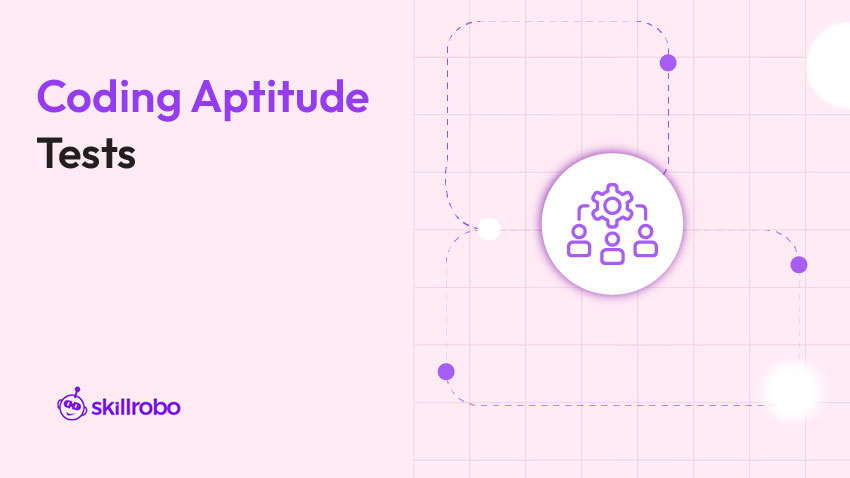
Companies have access to a sizable talent pool and are receiving a large number of job applications. The candidate shortlisting process is often hurried up by companies, owing to the large candidate pool to filter through and the shortage of time and resources required for sifting through profiles.
As a result, only the qualification and job experience of the candidate are considered, rather than other important skills like learning capabilities and their ability to apply their skills for successful programming. Multiple screenings and interviews follow, but no positive results are achieved. The hiring process is further hampered by two other problems, one of which is requiring non-technical recruiters to evaluate and screen applicants. The other is when applicants overstate their skills and knowledge during interviews to make a good impression.
Bulk hiring presents issues for recruiters because it is difficult and time-consuming to verify such claims. If this happens frequently during the hiring process, employers must adopt a new applicant assessment strategy that may address problem areas and go above and beyond the hiring manager’s and organization’s expectations. This can be enabled by understanding the coding aptitude test.
A programming aptitude test is a very good evaluation option that streamlines the recruitment process to evaluate candidates. If the organization wants to hire the top talent with the best programming skills, it can employ the programmer assessment test. In this article, we’ll discuss in detail the coding aptitude test and how it measures a candidate’s coding ability, and what types of tests you can combine with the computer programming aptitude test.
What Is A Coding Aptitude Test?
A coding aptitude test, which is also known as a programming aptitude test, evaluates a candidate’s understanding of and aptitude for using the coding skills necessary to be a proficient programmer. The test is intended to assist tech recruiters in selecting entry-level candidates by allowing them to thoroughly assess candidates before making a hiring choice.
These tests measure an individual’s capacity for logical reasoning, mathematics, coding, and algorithmic reasoning. Employers may find out if the prospect can employ linear thinking and their coding abilities in a real-world situation by giving them a programmer aptitude test.
Using the programmer aptitude test to evaluate candidates is safe and dependable. To limit system access based on the duties of specific individuals within the recruitment team, employers may utilize the role-based access control function. Test cheating is prevented by features like window violation and camera proctoring.
A programmer aptitude test is a process of obtaining, evaluating, and presenting evidence to show how well a programmer’s skills and knowledge match the job requirements and using the resulting data to decide the participant’s suitability for selection. The programming industry has used these tests with scientific validation for many years.
Why Should Organizations Use Programmer Assessment Tests?
The need for coding aptitude testing arises from the complexity of the procedure involved in evaluating coders. While taking into account the possibilities for the future, it exceeds their prior commitments. Therefore, a recruiter may find it difficult to evaluate candidates based on significant criteria, only filtering those that are eligible.
Thus, a coding aptitude test online gives them important information about the qualifications of the applicants. If employers tried to employ a coder based on their resume, they would be aware of the challenges involved. Employers should think about substituting programming aptitude tests for CV screening to save time. These tests show which candidate’s programming skills most closely match your requirements.
Online programmer aptitude tests are frequently used by businesses to enhance their hiring and training procedures and reduce high employee turnover rates. Their organized strategy helps organizations uncover exceptional candidates and stay informed about the valuable contributions each one makes to their businesses, which significantly reduces errors in predicting employee performance.
How does it measure a Candidate’s Coding Ability?
A coding aptitude test measures a candidate’s attention and effort levels, psychological preparedness for managing complicated projects, programming language design, team dynamics, the programming circumstance, potential success, and many other factors. This programmer aptitude test evaluates several fundamental skills using candidate assessment tools, including the job applicant’s technical knowledge and comprehension, to identify a limited number of qualified candidates from a large pool of applicants. They include:
- Basic programming languages like C, C++
- Problem-solving & logical thinking
- Core technical skills
- Intelligence
- Arithmetic skills
What Skills Can Be Assessed With A Programmer Aptitude Test?
A programming aptitude test can evaluate several skills. Employers can review some of the essential abilities listed below.
1. Programming Languages Proficiency
Employers should evaluate the prospects based on their proficiency with the programming languages that fulfill their needs. For instance, employers might need to confirm that the candidates are capable of coding in C#, Python, or Go. A coding aptitude test would be a quick and efficient way to review these skills.
2. Patterns And Sequences
Candidates must understand the importance of sequencing as well as how the computer will carry out the statements. Applicants should be aware that the patterns are repeatable solutions to common design issues in software. A programming aptitude test will make the selection process simpler if you need to review the applicant’s knowledge of sequence and pattern-related concepts.
3. Problem-Solving Skills
Can the prospects provide clients with solutions to difficult problems? Can they manage the difficult process of applying coding techniques to create, find, and execute solutions to complicated problems? Can they analyze a problem, create an algorithm, write code to solve it, test it, and fix any bugs? A coding aptitude test will efficiently and swiftly review these abilities.
Simulators and MCQs in Programming Aptitude Tests
To identify a candidate’s fundamental competencies and help in the hiring of the greatest possible talent to handle a variety of coding duties in the future, MCQs and Simulators work together to filter and screen fresh talent at scale.
Multiple choice questions (MCQs): These are among the best question types for assessing the candidate’s knowledge. They go beyond bringing straightforward basic queries. They go into great detail on the subject or ability. As a result, when framed, higher and future levels of thinking are in focus. The method allows for a rapid and accurate assessment of a vast array of content.
Coding simulators: On a platform, coding simulators are used to assess a candidate’s aptitude and strategy for working on real projects with real-world difficulties. Candidates write original code, which is quickly auto-graded and gives employers a clear understanding of the candidate’s coding abilities.
Primary Question Types Covered In An Aptitude Test For Coding
A programming aptitude test evaluates a candidate’s problem-solving skills utilizing scenario-based multiple-choice questions (MCQs) and programming concepts. The candidate’s knowledge of concepts, including algorithms, data structures, programming paradigms, syntax, and programming logic, is evaluated by the test. Candidates are judged on how well they can apply programming ideas to analyze issues, spot patterns, and create workable solutions. They are also tested on their ability to write functional code regardless of the programming language or framework they use.
The important question types in a coding aptitude test include
- Entry-level algorithm-related questions.
- Questions related to debugging in particular coding languages.
- Multiple-choice questions where candidates need to select one answer from the list.
- Multiple-answer questions where candidates need to select several answers from the list.
- Questions about using structured data in the database that relates to queries.
Types Of Aptitude Tests For Coding
There are various tests that employers can combine with programming tests as an HR professional. The following sorts of tests are some of the most common ones used for evaluating coding aptitude:
1. Cognitive ability test:
The employer can assess a candidate’s cognitive ability or skills in a particular subcategory using cognitive ability tests. When they combine a cognitive test with a coding aptitude test, they can look at the subcategories of them, like numerical reasoning, attention to detail, and critical thinking.
2. Software aptitude test:
Software aptitude tests or programmer aptitude tests can be used to determine whether candidates possess the necessary software-related skills to join the company. Relational database expertise, such as mastery of PostgreSQL or Docker, is one of the software abilities that employers may assess.
3. Culture and personality tests:
To determine whether an applicant’s characteristics and values align with the position the organization is hiring for, combine personality and culture tests with a programming aptitude test. The MBTI test, DISC, Enneagram, Big Five personality(OCEAN), and Culture Add tests are among the five personality and cultural assessments available.
4. Role-specific tests:
When hiring candidates, employers can incorporate some role-specific tests into the testing process to examine additional skills. For instance, they may select the best software architect test to evaluate their software design abilities.
5. Situational Judgment assessments:
Employers might want to evaluate situational judgment abilities, particularly time management and communication skills assessment. To determine whether applicants are qualified for the position, choose from the situational-judgment skills tests and combine them with the programmer assessment tests.
How To Create An Aptitude Test For A Software Developer?
Create a name for the assessment: Start by naming the assessment and making sure it stands out. When naming the test assessment, consider using or including a job title.
Pick up to five tests: The programming aptitude test is one of up to five tests selected. If the employer is unsure at this point which tests to choose, they can take into account the relevant tests.
Add customized coding questions: To identify key technical topics, develop an MCQ test. Questions must be based on fundamental information, ideas, applications, and tests of a variety of technologies.
Check them: They should verify the details and ensure all the relevant tests are included. Then they can think of more advanced choices like anti-cheating, qualifying questions, extra time for applicants, and other additional requirements.
Analyzing report: After the candidates completed the test, filter the candidates for further interviews on in-depth automated reports that thoroughly assess their coding prowess.
Conclusion
There is no reason to keep using archaic, ineffective techniques for evaluating software programmers. Both the process of pre-employment screening and interviewing applicants at scale and tech recruitment are evolving. Organizations that put a lot of effort into finding the ideal candidates must also use adequate filters to support their inaccurate shortlisting and ineffective assessment.
To ensure that every hired specialist adds value to the organization rather than just filling a position, a more targeted strategy is required. Companies must understand that there are certain objectives associated with employment. Additionally, they are endangering their current and future objectives by recruiting generalized engineers. Proficient coders should possess a strong technical basis, even at the entry-level, and should be expertized in at least one language.
This can be accomplished by looking beyond the attributes and focusing on a person’s real coding skills. Only by putting potential candidates through a programmer aptitude test can one ascertain such qualities.
Skillrobo’s programming aptitude test will provide the role-based access control feature to limit system access based on the responsibilities of specific individuals within the recruitment team. This tool has test cheating prevention features like window violation and camera proctoring.
Recruiters and hiring managers can use the insights obtained from their programmer assessment test to find the most qualified candidates for the job role. Employers can customize the tests by adding multiple skills in a single assessment test to create an effective assessment to evaluate multiple skills together.
Sign up now on Skillrobo for reliable coding aptitude tests and employ the best programmers.

Companies have access to a sizable talent pool and are receiving a large number of job applications. The candidate shortlisting process is often hurried up by companies, owing to the large candidate pool to filter through and the shortage of time and resources required for sifting through profiles.
As a result, only the qualification and job experience of the candidate are considered, rather than other important skills like learning capabilities and their ability to apply their skills for successful programming. Multiple screenings and interviews follow, but no positive results are achieved. The hiring process is further hampered by two other problems, one of which is requiring non-technical recruiters to evaluate and screen applicants. The other is when applicants overstate their skills and knowledge during interviews to make a good impression.
Bulk hiring presents issues for recruiters because it is difficult and time-consuming to verify such claims. If this happens frequently during the hiring process, employers must adopt a new applicant assessment strategy that may address problem areas and go above and beyond the hiring manager’s and organization’s expectations. This can be enabled by understanding the coding aptitude test.
A programming aptitude test is a very good evaluation option that streamlines the recruitment process to evaluate candidates. If the organization wants to hire the top talent with the best programming skills, it can employ the programmer assessment test. In this article, we’ll discuss in detail the coding aptitude test and how it measures a candidate’s coding ability, and what types of tests you can combine with the computer programming aptitude test.
What Is A Coding Aptitude Test?
A coding aptitude test, which is also known as a programming aptitude test, evaluates a candidate’s understanding of and aptitude for using the coding skills necessary to be a proficient programmer. The test is intended to assist tech recruiters in selecting entry-level candidates by allowing them to thoroughly assess candidates before making a hiring choice.
These tests measure an individual’s capacity for logical reasoning, mathematics, coding, and algorithmic reasoning. Employers may find out if the prospect can employ linear thinking and their coding abilities in a real-world situation by giving them a programmer aptitude test.
Using the programmer aptitude test to evaluate candidates is safe and dependable. To limit system access based on the duties of specific individuals within the recruitment team, employers may utilize the role-based access control function. Test cheating is prevented by features like window violation and camera proctoring.
A programmer aptitude test is a process of obtaining, evaluating, and presenting evidence to show how well a programmer’s skills and knowledge match the job requirements and using the resulting data to decide the participant’s suitability for selection. The programming industry has used these tests with scientific validation for many years.
Why Should Organizations Use Programmer Assessment Tests?
The need for coding aptitude testing arises from the complexity of the procedure involved in evaluating coders. While taking into account the possibilities for the future, it exceeds their prior commitments. Therefore, a recruiter may find it difficult to evaluate candidates based on significant criteria, only filtering those that are eligible.
Thus, a coding aptitude test online gives them important information about the qualifications of the applicants. If employers tried to employ a coder based on their resume, they would be aware of the challenges involved. Employers should think about substituting programming aptitude tests for CV screening to save time. These tests show which candidate’s programming skills most closely match your requirements.
Online programmer aptitude tests are frequently used by businesses to enhance their hiring and training procedures and reduce high employee turnover rates. Their organized strategy helps organizations uncover exceptional candidates and stay informed about the valuable contributions each one makes to their businesses, which significantly reduces errors in predicting employee performance.
How does it measure a Candidate’s Coding Ability?
A coding aptitude test measures a candidate’s attention and effort levels, psychological preparedness for managing complicated projects, programming language design, team dynamics, the programming circumstance, potential success, and many other factors. This programmer aptitude test evaluates several fundamental skills using candidate assessment tools, including the job applicant’s technical knowledge and comprehension, to identify a limited number of qualified candidates from a large pool of applicants. They include:
- Basic programming languages like C, C++
- Problem-solving & logical thinking
- Core technical skills
- Intelligence
- Arithmetic skills
What Skills Can Be Assessed With A Programmer Aptitude Test?
A programming aptitude test can evaluate several skills. Employers can review some of the essential abilities listed below.
1. Programming Languages Proficiency
Employers should evaluate the prospects based on their proficiency with the programming languages that fulfill their needs. For instance, employers might need to confirm that the candidates are capable of coding in C#, Python, or Go. A coding aptitude test would be a quick and efficient way to review these skills.
2. Patterns And Sequences
Candidates must understand the importance of sequencing as well as how the computer will carry out the statements. Applicants should be aware that the patterns are repeatable solutions to common design issues in software. A programming aptitude test will make the selection process simpler if you need to review the applicant’s knowledge of sequence and pattern-related concepts.
3. Problem-Solving Skills
Can the prospects provide clients with solutions to difficult problems? Can they manage the difficult process of applying coding techniques to create, find, and execute solutions to complicated problems? Can they analyze a problem, create an algorithm, write code to solve it, test it, and fix any bugs? A coding aptitude test will efficiently and swiftly review these abilities.
Simulators and MCQs in Programming Aptitude Tests
To identify a candidate’s fundamental competencies and help in the hiring of the greatest possible talent to handle a variety of coding duties in the future, MCQs and Simulators work together to filter and screen fresh talent at scale.
Multiple choice questions (MCQs): These are among the best question types for assessing the candidate’s knowledge. They go beyond bringing straightforward basic queries. They go into great detail on the subject or ability. As a result, when framed, higher and future levels of thinking are in focus. The method allows for a rapid and accurate assessment of a vast array of content.
Coding simulators: On a platform, coding simulators are used to assess a candidate’s aptitude and strategy for working on real projects with real-world difficulties. Candidates write original code, which is quickly auto-graded and gives employers a clear understanding of the candidate’s coding abilities.
Primary Question Types Covered In An Aptitude Test For Coding
A programming aptitude test evaluates a candidate’s problem-solving skills utilizing scenario-based multiple-choice questions (MCQs) and programming concepts. The candidate’s knowledge of concepts, including algorithms, data structures, programming paradigms, syntax, and programming logic, is evaluated by the test. Candidates are judged on how well they can apply programming ideas to analyze issues, spot patterns, and create workable solutions. They are also tested on their ability to write functional code regardless of the programming language or framework they use.
The important question types in a coding aptitude test include
- Entry-level algorithm-related questions.
- Questions related to debugging in particular coding languages.
- Multiple-choice questions where candidates need to select one answer from the list.
- Multiple-answer questions where candidates need to select several answers from the list.
- Questions about using structured data in the database that relates to queries.
Types Of Aptitude Tests For Coding
There are various tests that employers can combine with programming tests as an HR professional. The following sorts of tests are some of the most common ones used for evaluating coding aptitude:
1. Cognitive ability test:
The employer can assess a candidate’s cognitive ability or skills in a particular subcategory using cognitive ability tests. When they combine a cognitive test with a coding aptitude test, they can look at the subcategories of them, like numerical reasoning, attention to detail, and critical thinking.
2. Software aptitude test:
Software aptitude tests or programmer aptitude tests can be used to determine whether candidates possess the necessary software-related skills to join the company. Relational database expertise, such as mastery of PostgreSQL or Docker, is one of the software abilities that employers may assess.
3. Culture and personality tests:
To determine whether an applicant’s characteristics and values align with the position the organization is hiring for, combine personality and culture tests with a programming aptitude test. The MBTI test, DISC, Enneagram, Big Five personality(OCEAN), and Culture Add tests are among the five personality and cultural assessments available.
4. Role-specific tests:
When hiring candidates, employers can incorporate some role-specific tests into the testing process to examine additional skills. For instance, they may select the best software architect test to evaluate their software design abilities.
5. Situational Judgment assessments:
Employers might want to evaluate situational judgment abilities, particularly time management and communication skills assessment. To determine whether applicants are qualified for the position, choose from the situational-judgment skills tests and combine them with the programmer assessment tests.
How To Create An Aptitude Test For A Software Developer?
Create a name for the assessment: Start by naming the assessment and making sure it stands out. When naming the test assessment, consider using or including a job title.
Pick up to five tests: The programming aptitude test is one of up to five tests selected. If the employer is unsure at this point which tests to choose, they can take into account the relevant tests.
Add customized coding questions: To identify key technical topics, develop an MCQ test. Questions must be based on fundamental information, ideas, applications, and tests of a variety of technologies.
Check them: They should verify the details and ensure all the relevant tests are included. Then they can think of more advanced choices like anti-cheating, qualifying questions, extra time for applicants, and other additional requirements.
Analyzing report: After the candidates completed the test, filter the candidates for further interviews on in-depth automated reports that thoroughly assess their coding prowess.
Conclusion
There is no reason to keep using archaic, ineffective techniques for evaluating software programmers. Both the process of pre-employment screening and interviewing applicants at scale and tech recruitment are evolving. Organizations that put a lot of effort into finding the ideal candidates must also use adequate filters to support their inaccurate shortlisting and ineffective assessment.
To ensure that every hired specialist adds value to the organization rather than just filling a position, a more targeted strategy is required. Companies must understand that there are certain objectives associated with employment. Additionally, they are endangering their current and future objectives by recruiting generalized engineers. Proficient coders should possess a strong technical basis, even at the entry-level, and should be expertized in at least one language.
This can be accomplished by looking beyond the attributes and focusing on a person’s real coding skills. Only by putting potential candidates through a programmer aptitude test can one ascertain such qualities.
Skillrobo’s programming aptitude test will provide the role-based access control feature to limit system access based on the responsibilities of specific individuals within the recruitment team. This tool has test cheating prevention features like window violation and camera proctoring.
Recruiters and hiring managers can use the insights obtained from their programmer assessment test to find the most qualified candidates for the job role. Employers can customize the tests by adding multiple skills in a single assessment test to create an effective assessment to evaluate multiple skills together.
Sign up now on Skillrobo for reliable coding aptitude tests and employ the best programmers.





